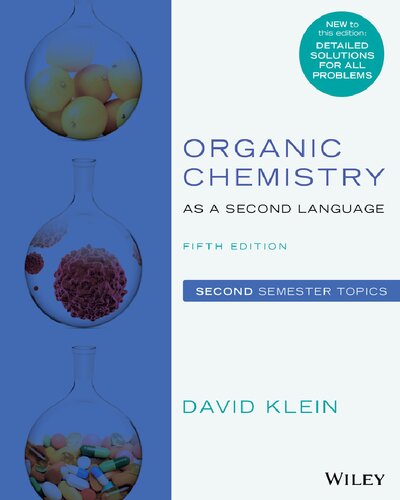

Most ebook files are in PDF format, so you can easily read them using various software such as Foxit Reader or directly on the Google Chrome browser.
Some ebook files are released by publishers in other formats such as .awz, .mobi, .epub, .fb2, etc. You may need to install specific software to read these formats on mobile/PC, such as Calibre.
Please read the tutorial at this link: https://ebookbell.com/faq
We offer FREE conversion to the popular formats you request; however, this may take some time. Therefore, right after payment, please email us, and we will try to provide the service as quickly as possible.
For some exceptional file formats or broken links (if any), please refrain from opening any disputes. Instead, email us first, and we will try to assist within a maximum of 6 hours.
EbookBell Team

4.7
66 reviewsOrganic chemistry can be a challenging subject. Most students view organic chemistry as a subject requiring hours upon hours of memorization. Author David Klein’s Second Language books prove this is not true—organic chemistry is one continuous story that actually makes sense if you pay attention. Offering a unique skill-building approach, these market-leading books teach students how to ask the right questions to solve problems, study more efficiently to avoid wasting time, and learn to speak the language of organic chemistry.
The fifth edition of Organic Chemistry as a Second Language: Second Semester Topics builds upon the principles previously explored in first half of the course—delving deeper into molecular mechanisms, reactions, and analytical techniques. Hands-on exercises and thoroughly-explained solutions further reinforce student comprehension of chemical concepts and organic principles. An indispensable supplement to the primary text, this resource covers aromatic compounds, infrared (IR) and nuclear magnetic resonance (NMR) spectroscopy, nucleophilic and electrophilic aromatic substitution, ketones and aldehydes, carboxylic acid derivatives, and much more.